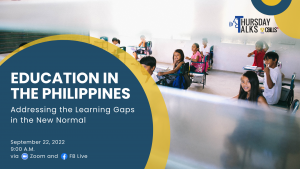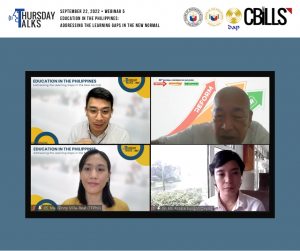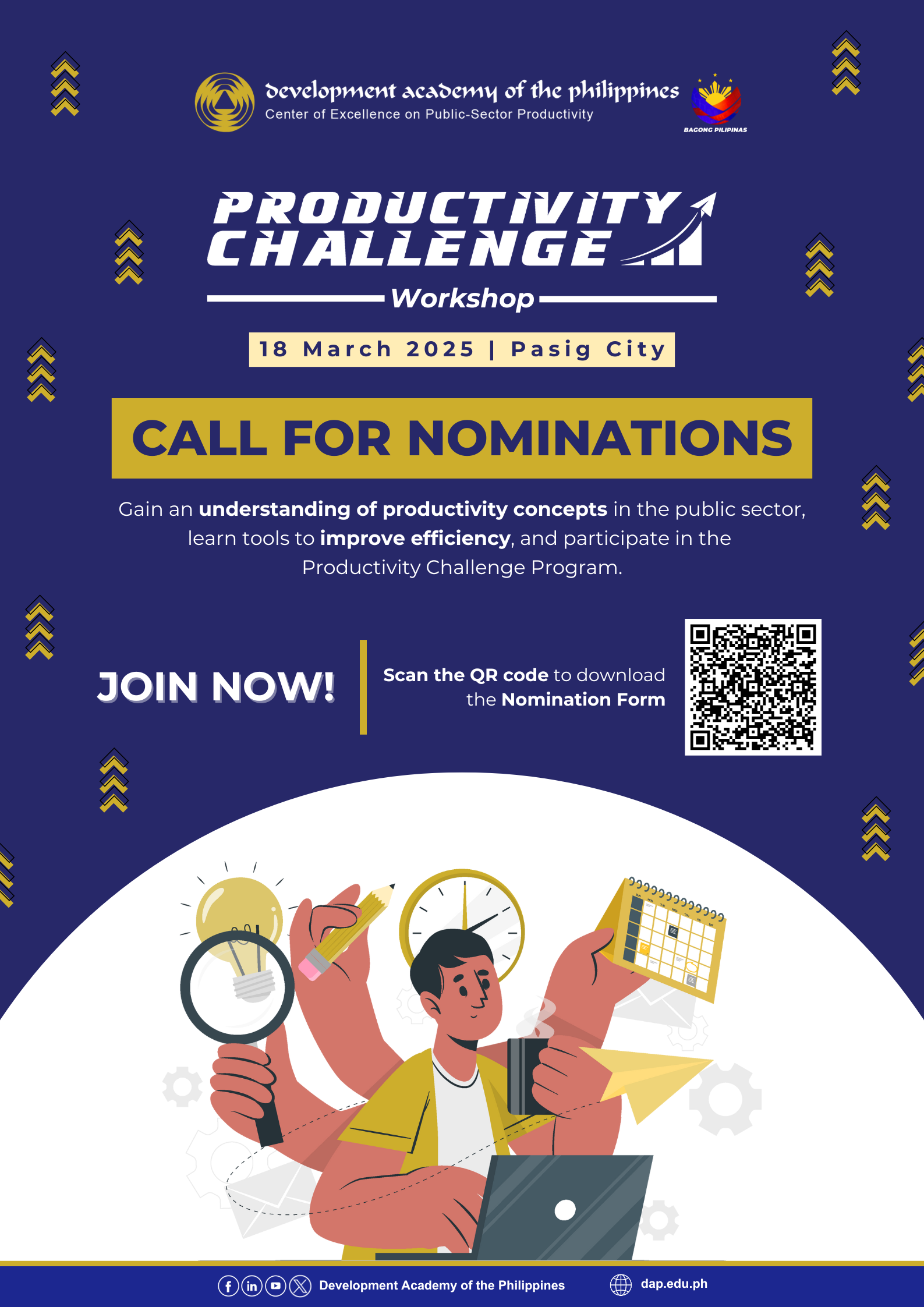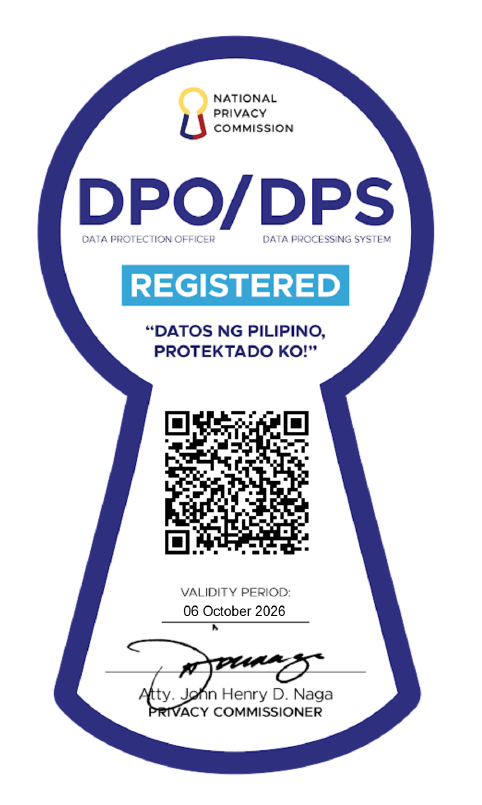
Experts and stakeholders examined the current educational landscape in the fifth installment of the Capability Building on Innovative Leadership for Legislative Staff (CBILLS) Program’s Thursday Talks: Webinar Series on Socio-Political and Economic Perspectives entitled “Education in the Philippines: Addressing the Learning Gaps in the New Normal” conducted by the Development Academy of the Philippines, through its Center for Governance-Policy Research Office (CFG-PRO).
The webinar, held last September 22, tackled current issues on education in the Philippines, including the identified learning gaps caused by the COVID-19 pandemic, and examined the role of public policy reform in addressing these issues and gaps.
Dr. Vicente Paqueo, visiting research fellow at the Philippine Institute for Development Studies, underscored that, even before the pandemic, most basic education students were already below the minimum proficiency standards, both nationally and internationally. One of the possible reasons he presented was the “overwhelming focus on universal schooling at all levels” despite not having enough resources for the various education needs.
“We have to kind of slow down this expansion of so called free higher education because at the end of the day, what happens in higher education performance will depend on the foundational skills being taught and learned in elementary, junior high school, and senior high school,” Dr. Paqueo added.
In the second session, Ms. Rosalie Bongon, supervising education program specialist of the Bureau of Learning Delivery-Teaching and Learning Division of the Department of Education (DepEd), focused on the DepEd’s post-COVID-19 recovery strategies, and one of the new and existing programs that support these was the resumption of in-person classes by November 2022.
Ms. Bongon explained its importance by quoting UNICEF Executive Director Henrietta Fore, “we must reopen schools for in-person learning as soon as possible, and we must immediately address the gaps in learning this pandemic has already created. Unless we do, some children may never catch up.”

(From top-left, clockwise: UP Diliman Assistant Professor Dr. Jan Robert R. Go, PIDS Visiting Research Fellow Dr. Vicente B. Paqueo, DepEd Supervising Education Program Specialist Ms. Rosalie E. Bongon, and TFP Program and Training Director Ms. Gianna Marie A. Villa-Real)
Panel discussants Ms. Gianna Marie Villa-Real, program and training director of Teach for the Philippines (TFP), and Dr. Jan Robert Go, assistant professor at the UP Department of Political Science, conveyed their insights on the education sector and possible approaches in providing education service delivery in the new normal. Ms. Villa-Real shared TFP’s key learnings during the pandemic while Dr. Go looked at the possible root causes of the challenges presented.
Dr. Felicia Yeban, professor at the Faculty of Behavioral and Social Sciences of the Philippine Normal University, moderated the webinar and presented a synthesis of the sessions and open forum discussion using John Kingdon’s Multiple Streams Framework, the 7S Model, and Bronfenbrenner’s Ecological Systems Theory.
The livestream of this event can be accessed through the Policy Research Office Facebook Page at www.facebook.com/DAPCFGPRO. Watch out for the next webinar on “Where To: Setting Policy Directions on Migration Governance” on October 27, 2022.
Nikka Thea F. Cunom




